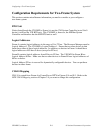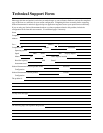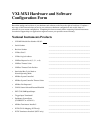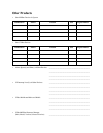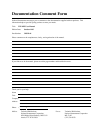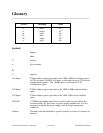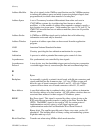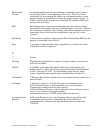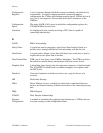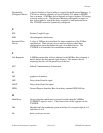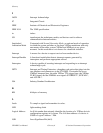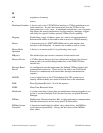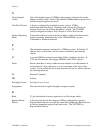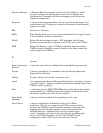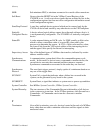Glossary
© National Instruments Corporation Glossary-3 VXI-MXI User Manual
Block-mode An uninterrupted transfer of data elements in which the master sources
Transfer only the first address at the beginning of the cycle. The slave is then
responsible for incrementing the address on subsequent transfers so that
the next element is transferred to or from the proper storage location. In
VME, the data transfer may have no more than 256 elements; MXI does
not have this restriction.
BTO Bus Timeout Unit; a functional module that times the duration of each
data transfer and terminates the cycle if the duration is excessive. Without
the termination capability of this module, a Bus Master attempt to access a
nonexistent slave could result in an indefinitely long wait for a slave
response.
Bus Master A device that is capable of requesting the Data Transfer Bus (DTB) for the
purpose of accessing a slave device.
Byte A grouping of adjacent binary digits operated on as a single unit. Most
commonly consists of eight bits.
C
C Celsius
Clearing Replacing the information in a register, storage location, or storage unit
with zeros or blanks.
CLK10 A 10 MHz, ± 100 ppm, individually buffered (to each module slot),
differential ECL system clock that is sourced from Slot 0 and distributed
to Slots 1 through 12 on P2. It is distributed to each slot as a single-
source, single-destination signal with a matched delay of under 8 ns.
Commander A Message-Based device which is also a bus master and can control one or
more Servants.
Command A directive to a device. In VXI, three types of commands exists:
In Word Serial Protocol, a 16-bit imperative to a servant from its
Commander (written to the Data Low register);
In Shared Memory Protocol, a 16-bit imperative from a client to a server,
or vice versa (written to the Signal register);
In Instrument devices, an ASCII-coded, multi-byte directive.
Communications In Message-Based devices, a set of registers that are accessible to the
Registers Commander and are used for performing Word Serial Protocol
communications. Not present in Register-Based devices such as the
VXI-MXI.



